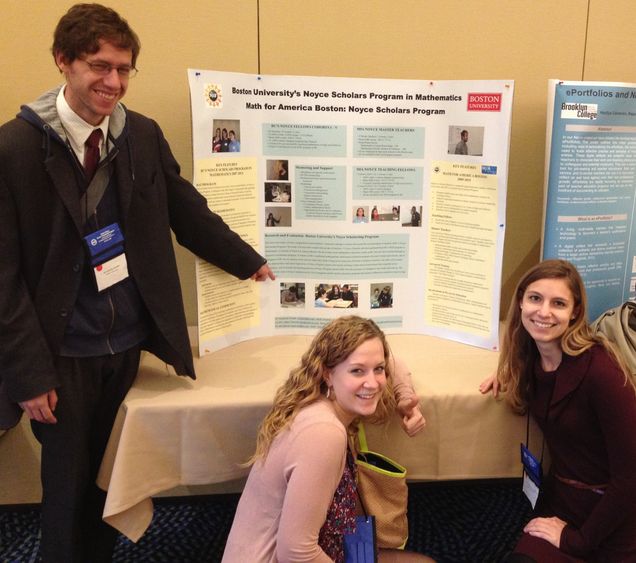Frequently Asked Questions
Home » Noyce Math » Frequently Asked Questions
Frequently Asked Questions

Where can I teach?
Noyce scholars can teach anywhere in the United States. They can teach in a rural or an urban district as long as it meets the criteria of high-need.
What is a high-need district?
The term “a high-need local educational agency” as defined in section 201 of the Higher Education Act of 1965 (20 U.S.C. 1021) means a local educational agency (school district) that has at least one school that:
- meets at least one of the following criteria:
- not less than 20% of the children served by the agency are from low income families;
- serves at least 10,000 children from low-income families;
- is eligible for funding under the Small, Rural School Achievement Program under 20 U.S.C. 7345(b); or
- is eligible for funding under the Rural and Low-Income School Program under 20 U.S.C. 7351(b);
- and meets at least one of the following criteria:
- has a high percentage of teachers not teaching in the academic subject areas or grade levels in which the teachers were trained to teach; or
- has a high teacher turnover rate or a high percentage of teachers with emergency, provisional, or temporary certification or licensure.
I didn’t major in mathematics. Can I still apply?
Yes, the J-Squared Noyce program is recruiting individuals with a background in mathematics, engineering and other STEM fields. Click here for more details. Contact us to explore your options!
I majored in mathematics. Can I still apply?
Definitely! The Noyce Scholarships can be awarded to individuals who majored in a STEM field (science, technology, engineering, or mathematics).
I am not a U.S. citizen. Can I apply?
Noyce scholars must be United States citizens, nationals, or permanent resident aliens. However, non-U.S. citizens can apply to Boston University’s School of Education and earn a degree to teach. Click here for more information.
How can I find out if a district is high-need?
- Use web-search engines and enter “high-need districts in ______________(your state)”
- Examine public record data for a district to see if it meets the high-need criteria